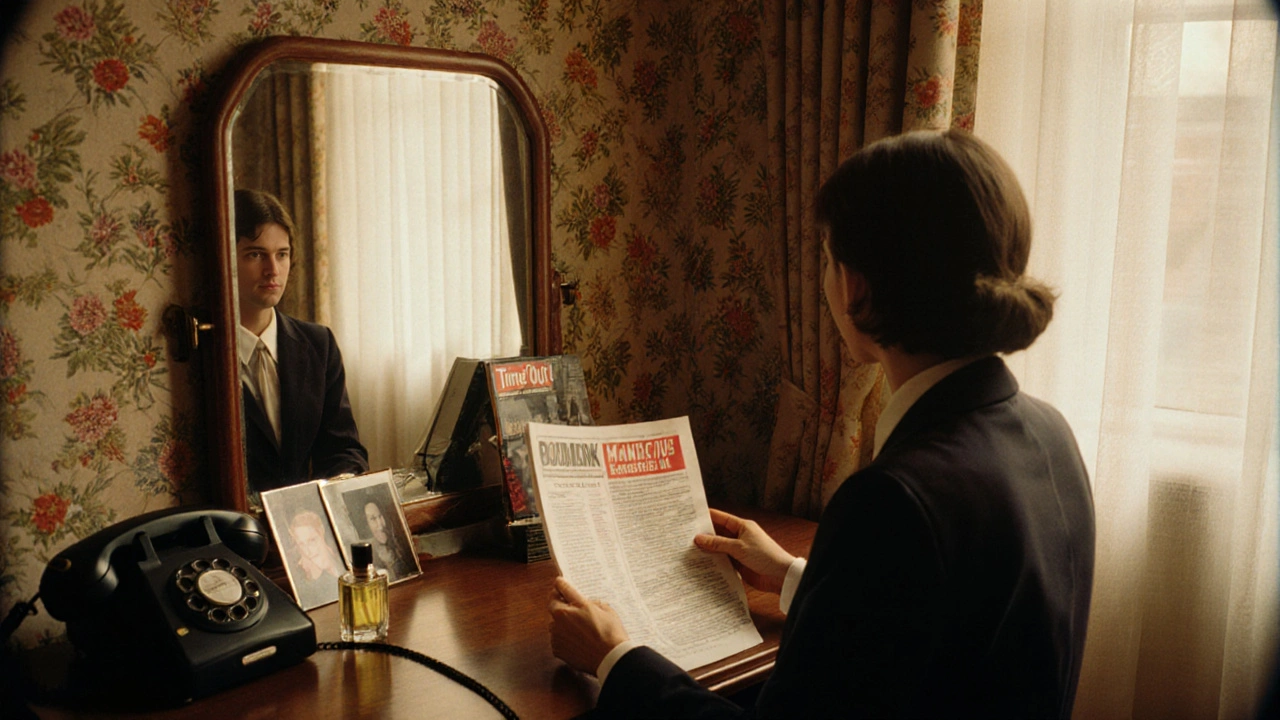The Evolution of Call Girls: From Past to Present

What did call girls look like in the 1800s?
In the 1800s, call girls weren’t called that-they were often referred to as "ladies of the night" or "fallen women." Many worked in brothels tucked into back alleys of London, Paris, or New York. They didn’t have websites or apps. Their clients found them through word of mouth, taverns, or discreet notices in newspapers.
Unlike today, there was no screening, no reviews, and no safety protocols. Police raids were common, and many women faced arrest, public shaming, or forced labor in workhouses. Their lives were controlled by pimps, landlords, or abusive partners. Survival came before choice.
How did the 20th century change things?
The 1920s to 1960s brought subtle shifts. After World War II, more women entered the workforce, and urbanization made anonymity easier. Call girls started renting apartments instead of working in brothels. Some even used phone lines to take bookings-early versions of today’s escort services.
The 1970s saw the rise of "independent escorts." Women began marketing themselves through classified ads in magazines like Playboy or Time Out. They set their own rates, chose clients, and sometimes had college degrees. This wasn’t just survival-it was entrepreneurship, even if it was illegal.
When did the internet turn call girls into modern escorts?
The early 2000s changed everything. Websites like Backpage, Eros, and later, independent booking platforms, gave women control over their image, pricing, and schedule. No more pimps. No more street corners. Just a laptop, a camera, and a secure connection.
Photos became professional. Profiles included interests, languages spoken, and even personality traits. Clients could read reviews, check availability, and book with a click. Safety improved: many used verified ID checks, screening questions, and even panic buttons linked to friends.

Are today’s call girls really different from past sex workers?
Yes-and not just because of technology. Modern escorts often treat this as a business, not a last resort. Many have degrees, speak multiple languages, and work part-time while pursuing other careers. Some manage teams of assistants, hire photographers, or even run YouTube channels about lifestyle and boundaries.
Legal gray areas still exist. In the UK, selling sex isn’t illegal, but soliciting, brothel-keeping, and pimping are. That means most work alone, from home or rented flats. They avoid street work entirely. The stigma hasn’t vanished, but the narrative is shifting-from shame to self-determination.
What does the data say about today’s escort market?
According to industry estimates from 2024, over 80% of independent escorts in London operate online. Around 65% are between 22 and 35 years old. Nearly half have university education. The average hourly rate ranges from £150 to £400, depending on experience, location, and services.
Most clients are married men aged 35-55, but there’s growing demand from younger professionals and LGBTQ+ individuals. The top cities for bookings are London, Manchester, and Edinburgh-with London accounting for nearly 40% of all UK escort activity.

How do modern escorts stay safe?
Safety isn’t optional-it’s standard. Today’s professionals use:
- Client screening via video calls before meeting
- Third-party verification services like EscortShield or SafeEscort
- Real-time location sharing with trusted contacts
- Strict no-drugs, no-alcohol policies during appointments
- Payment via encrypted apps like Revolut or Wise, never cash
Many also belong to online forums where they share red flags, banned clients, and legal advice. Some even collaborate with NGOs to provide mental health support.
Is the industry becoming more accepted?
Public opinion is slowly changing. A 2023 YouGov poll showed that 38% of Britons now see sex work as a legitimate job choice-up from 22% in 2015. Podcasts, documentaries, and memoirs by former escorts have humanized the experience.
Politicians still debate decriminalization. But grassroots movements, led by former workers, are pushing for labor rights: access to banking, housing, and healthcare without fear of exposure. The goal isn’t glorification-it’s dignity.
What’s next for the industry?
AI-generated profiles are already being used by some to automate client responses. Blockchain-based payment systems are being tested to ensure anonymity and security. Some agencies are experimenting with verified digital IDs tied to government-issued documents.
But the core hasn’t changed: people still seek connection, discretion, and control. The future belongs to those who can balance technology with humanity-without losing autonomy.
Is it legal to be a call girl in the UK?
Selling sex itself isn’t illegal in the UK, but many related activities are. It’s against the law to solicit in public, run a brothel, or control someone else’s sex work. Most modern escorts avoid these risks by working independently from private locations.
Do call girls still work on the streets today?
Very few do. Street-based sex work has dropped sharply since the 2000s due to increased police pressure, safer online alternatives, and better access to digital tools. Most now operate through private websites, apps, or social media.
How do clients find modern escorts?
Clients use dedicated escort websites, private Instagram or Telegram accounts, or referral networks. Many escorts now require video calls and ID verification before meeting. Word-of-mouth and repeat clients make up the bulk of business.
Are escort services the same as prostitution?
Legally, yes-they fall under the same umbrella. But culturally, "escort" often implies companionship, discretion, and professionalism, while "prostitution" carries stigma and implies desperation. Many workers prefer "escort" because it reflects autonomy, not exploitation.
Can you make a living as an escort in London?
Yes, many do. With rates between £150 and £400 per hour, working 10-15 hours a week can generate £2,000-£6,000 monthly. Those with strong branding, repeat clients, or niche services (like multilingual or high-end profiles) often earn more.




